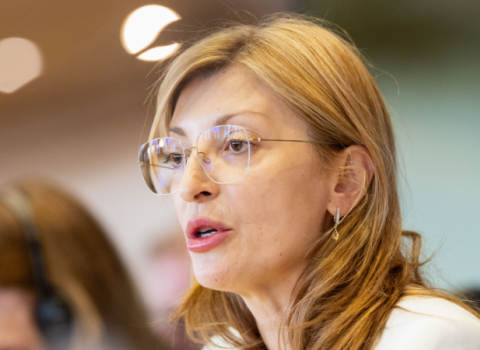
Science|Business Senior Editor Nuala Moran.
No wonder, then, that so little headway has been made since the notion of a “single internal market” for European Research was first proposed in 2000. Since the beginning of 2007, Potočnik has been trying to invigorate the process, insisting that in a globalised world, national interests and European interests coincide.
He spent much of last year embroiled in the production and promotion of the ERA Green Paper, which was published in April. In it the Commission solicits comment on proposals that include coordination of national R&D budgets to avoid duplication and achieve economies of scale, new career structures for researchers, and changes to pensions schemes to allow scientists to move seamlessly from institution to institution, and between industry and academe.
Many, however, interpreted the Green Paper not as an attempt to ensure greater coordination across the continent to improve competitiveness, but as a move to further bureacratise research and research policy by centralising it in Brussels. There was also criticism that the free movement of researchers would lead to the homogenisation of Europe’s scientific culture.
There were over 800 responses to the Green Paper, and despite reservations, the Commission claimed there was widespread support for the ERA concept.
Now Europe’s research ministers have thrown their collective weight behind the project, agreeing EU Member States and the European Commission will take joint responsibility for establishing a genuine single European Research Area. In a lively debate on their vision for the ERA when they met under the auspices of the Slovenian Presidency last week, the ministers highlighted the mobility of researchers, backed by compatible career structures, and the need for modern universities and research organisations. And they called for a coordinated strategy for international cooperation in science and technology.
The ministers called for the common vision – based on the Green Paper consultation process – to be formulated as soon as possible, as the basis for framing policy and action plans for implementing the ERA.
And, significantly, it was agreed that the ERA can be achieved only through improved political management. This means it must encompass policies on research, education and innovation, and involve the full range of stakeholders.
Member States also undertook to exchange examples of good practice and apply them in national research policies. According to the Slovenian Presidency, the new partnership initiated by the Ljubljana Process will be reflected in the work the future French, Czech and Swedish Presidencies.
And so it would appear that Potočnik has succeeded in building momentum for change, if not quite getting the change itself under way. As he himself said, “We now have the compass and know where we are heading.”
The apparent desire for change that the Ljubljana Process signifies is important progress. After all, a genuine European Research Area will only be created if all researchers, their institutions and companies, the Member States and regions as well as the Commission work together in partnership – each accepting their responsibility for making it happen.





 A unique international forum for public research organisations and companies to connect their external engagement with strategic interests around their R&D system.
A unique international forum for public research organisations and companies to connect their external engagement with strategic interests around their R&D system.